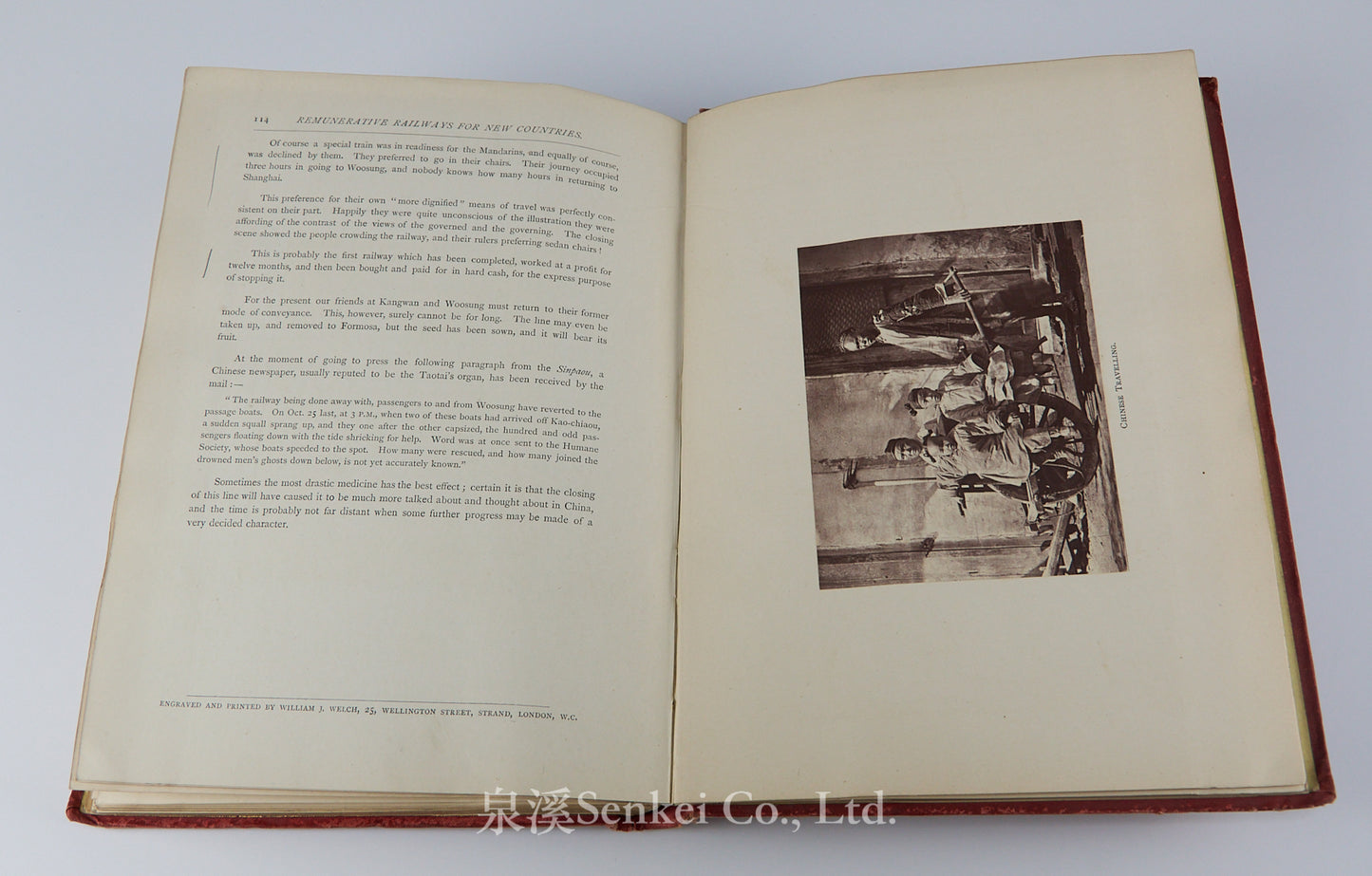Remunerative Railways for New Countries: With Some Account of the First Railway in China, Including 8 Original Woodbury Photographs of the First Chinese Railway (Woosung Railway), 1878
Remunerative Railways for New Countries: With Some Account of the First Railway in China, Including 8 Original Woodbury Photographs of the First Chinese Railway (Woosung Railway), 1878
盈利性鐵路:兼論中國第一條鐵路新興國家之盈利性鐵路:兼論中國首條鐵路/附吳淞鐵路原版伍德伯里照八幅
作者(Author):Richard Christopher Rapier, Photographs probably by William Saunders
出版社(Publisher):E. & F.N. Spon, London
出版時間(Publishing Date):1878
頁數(Pages):114
裝幀(Binding):Hardcover
品相(Condition):Good
尺寸(Size):25.3x19.5cm
Containing eight original Woodbury photographs of the Woosung Railway (Wusong Railway) — the first modern railway in China — this volume documents the earliest phase of railway construction and operation in the country. The photographs capture the arrival of China’s first locomotive “Pioneer”, the unloading of railway materials and construction workers along the Huangpu River, group portraits of Chinese and foreign participants at the opening ceremony, full views of the “Pioneer” locomotive and its carriages in operation, panoramic views of Woosung Station, and Western passengers posing on the train.
These images represent the only surviving photographic record of the Woosung Railway, and scholars have suggested that they were probably taken by the renowned Shanghai photographer William Saunders.
In addition to the photographs, the book includes a detailed written account of the construction and operation of the Woosung Railway, providing invaluable documentation for the study of the early history of railway development in China.
The Woosung Railway, connecting Shanghai and Woosung, was the first passenger-carrying railway in China. Built in 1876 by British merchants without official approval, it operated for only sixteen months before being purchased by the Qing government for 285,000 taels of silver and subsequently dismantled.
Covers slightly rubbed and soiled. Interior clean and well preserved, with a few pencil annotations.
Ask a Question




















